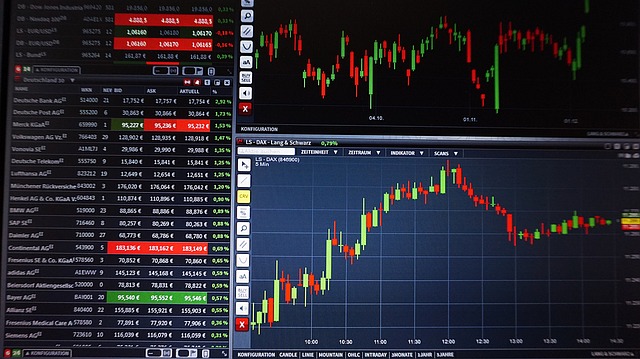Metals trading is a captivating realm that provides investors with a gateway to the dynamic world of commodities. Gaining a comprehensive understanding of the intricacies of metals trading, from gold and silver to platinum and copper, is essential for harnessing the potential power within this market. Australia is a global leader in producing and exporting diverse metals, encompassing gold, iron ore, copper, and aluminum. The country's rich mineral resources and well-established mining industry contribute to its prominent global metals trading market position. Investors can explore the market by considering the services of the best gold CFD trading brokers in Australia. This comprehensive guide will explore the critical aspects of metals trading, empowering traders to make informed decisions and capitalize on profitable opportunities.
Section 1: Introduction to Metals Trading
Metals trading involves buying and selling various metals, including precious metals like gold and silver, industrial metals like copper and aluminum, and rare metals like platinum and palladium. Traders engage in metals trading for various reasons, including portfolio diversification, hedging against inflation, and speculation on price movements.
Section 2: Key Metals Traded in Financial Markets
Each metal has unique characteristics and drivers that influence its price movement. Gold, often referred to as the "king of metals," is prized for its scarcity, durability, and perceived value as a store of wealth. Silver, known for its industrial applications and investment appeal, tends to exhibit greater price volatility than gold. Copper, a vital component in electronics and construction, is closely linked to global economic activity. Platinum and palladium, primarily used in catalytic converters for automobiles, are valued for their rarity and industrial utility.
Section 3: Market Dynamics and Factors Influencing Metals Prices
Many factors, including supply and demand dynamics, economic indicators, geopolitical events, and currency movements, influence metals prices. For example, disruptions in mining operations can affect the supply of metals. At the same time, changes in interest rates and inflation expectations can impact investor sentiment and demand for metals as a hedge against currency depreciation.
Section 4: Strategies for Metals Trading Success
Successful metals trading requires a comprehensive understanding of fundamental and technical analysis techniques. Fundamental analysis involves evaluating supply and demand fundamentals, geopolitical developments, and macroeconomic trends to assess the intrinsic value of metals. Technical analysis, on the other hand, utilizes price charts, trend lines, and technical indicators to identify potential entry and exit points based on historical price patterns and market trends.
Section 5: Trading Platforms and Tools for Metals Traders
Modern trading platforms offer a wide range of tools and resources to assist metal traders in decision-making. These platforms provide real-time market data, advanced charting capabilities, and access to various order types, including market orders, limit orders, and stop-loss orders. Additionally, traders can utilize algorithmic trading strategies and automated systems to execute trades efficiently and capitalize on market opportunities.
Section 6: Tips for Effective Metals Trading
To succeed in metals trading, traders should prioritize continuous learning, develop a disciplined trading plan, and practice effective risk management techniques. It's essential to stay informed about market developments, maintain a calm and rational mindset, and avoid succumbing to emotional biases. By adhering to a systematic approach and managing risk effectively, traders can improve their chances of success in metals trading.
The Significance of Metals Trading
Metals trading holds immense significance in the global economy. Metals like gold, silver, and platinum have served as stores of value for centuries, while industrial metals like copper and aluminum play vital roles in various sectors. Understanding different metals' diverse applications and demand drivers is fundamental to comprehending their trading dynamics.
Exploring Metal Markets and Exchanges
Metal markets function through exchanges that facilitate the buying and selling of metal contracts. Please familiarise yourself with prominent metal exchanges and their trading mechanisms. Notable exchanges such as the Sydney Futures Exchange (SFE) and COMEX play pivotal roles in establishing price benchmarks and offering a platform for global metal trading.
Factors Influencing Metal Prices
Several factors impact metal prices, and staying informed about them is essential for successful trading. Economic indicators, geopolitical events, supply and demand dynamics, currency fluctuations, and central bank policies contribute to metal price movements. By monitoring and analyzing these factors, traders can gain insights into potential price trends and make informed trading decisions.
Analyzing Fundamental Factors
Fundamental analysis is a critical component of metals trading. It evaluates supply and demand fundamentals, global economic trends, industrial consumption patterns, and geopolitical developments. By assessing these factors, traders can identify potential market opportunities and make informed decisions based on the underlying value of metals.
Utilizing Technical Analysis Tools
Technical analysis is an essential tool for metal traders. Traders can effectively identify potential entry and exit points by leveraging charting tools, indicators, and price patterns. Moving averages, relative strength index (RSI), and Fibonacci retracements are just a few examples of technical analysis tools that can assist in assessing market trends and making well-timed trading decisions.
Risk Management Strategies
Effective risk management is crucial in metals trading. Set realistic risk-reward ratios for trades and establish stop-loss orders to limit potential losses. Diversifying your portfolio across different metals and allocating an appropriate portion of capital to each trade can help manage risk effectively. Implementing sound risk management strategies ensures longevity and stability in metals trading endeavors.
Trading Psychology and Discipline
Trading psychology plays a significant role in metals trading. Emotions such as fear and greed can influence decision-making and lead to impulsive actions. Developing discipline, patience, and emotional resilience is vital for maintaining a strategic approach and adhering to trading plans. Traders must cultivate a mindset that enables them to navigate the inevitable ups and downs of metals trading.
Conclusion
With the help of the best gold CFD trading brokers in Australia, investors can explore reputable platforms offering competitive pricing, robust trading tools, regulatory compliance, and excellent customer support. Remember, continuous learning, adaptability, and diligent market analysis are vital in navigating this exciting realm and unlocking the potential for success in metals trading.


